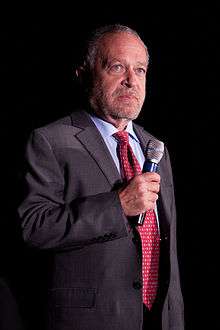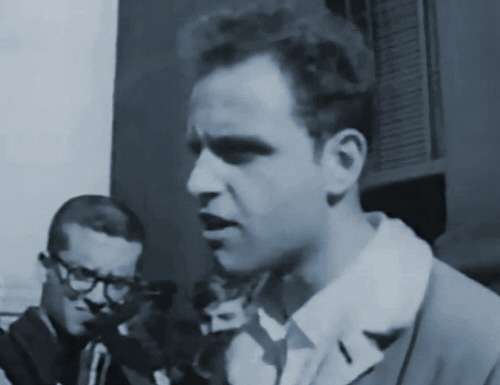 ROBERT REICH "Screw us and we multiply" -- Women's movement slogan
ROBERT REICH "Screw us and we multiply" -- Women's movement sloganThe
Occupy movement in America (spreading to the rest of the world) is not a place or a series of places, but a spirit and an idea, and it is not going to go away. After several months of occupations, a conference call of eighteen US city mayors discussed the "problem" of people's actions in public spaces all over the country. The results were surprise police shutdowns and mass arrests, notably at the east and west epicenters of the movement, Occupy Oakland and Occupy Wall Street at Zuccotti Park. Despite disclaimers, these police actions, which in New York came after midnight and included sending masses of the protesters' property to a dump yard, were, needless to say, felt as brutal by the activists. Nothing could galvanize them more. The mayors' repressions have only inspired the Occupy movement and made its participants better understand what they're all about.
First of all the tents are only symbolically significant. The spirit of Occupy is a mass mobilization and a new social movement where many social forces are coming together on a very serious political platform. It's been said that the movement lacks direction. But historians of mass political action point out that all such actions begin with the spirit, and later define their goals. Already the Occupy actions all over the country have one simple thing in common. This was defined very clearly by Professor Robert Reich of Berkeley, speaking to thousands gathered on campus November 16, 2011 in response to the closing of the Oakland Occupy site. All these Occupy actions, Reich said, "are ways in which people are beginning to respond to the crisis in our democracy."
The Sixties spirit returns to Sproul PlazaThat evening Reich, UC Professor of Public Policy and former Secretary of Labor, was giving the annual Mario Savio Memorial Lecture. To honor the demonstrators in the Plaza, this lecture was moved out directly onto the Mario Savio Steps, so dedicated in 1997, in front of Sproul Hall at UC Berkeley, a place famous for the Free Speech Movement of the 1960's, of which Mario Savio was the most visible leader, and the 1980's anti-Apartheid actions, among other events. Barred by police from setting up tents on the periphery of Sproul Plaza, demonstrators had already set them up that night right on the steps. Later Daniel Ellsberg, who had not spoken but was swept away by the spirit shown at this gathering, himself spent the night in one of the tents. Speaking to a KPFA interviewer about the "general assembly" of thousands in the Plaza that night, Ellsberg said "I wouldn't have thought it would happen." "Inspiring," he called it, identifying what was going on as a resurgence of "the youthful spirit of the Sixties."
"
A new progressive movement"In a
NY Times article Jeffrey D. Sachs defines Occupy as "A New Progressive Movement" -- one whose historical moment has arrived as a result of economic manipulation that the people can no longer tolerate. This is the third time, Sachs says. The first was the Gilded Age of the late 19th century when, like today, "both political parties served the interests of the corporate robber barons." Then came the financial crisis of 1893, and a progressive movement followed. Theodore Roosevelt and Woodrow Wilson came to power and major fiscal and labor reforms came about. The "second gilded age" was the Roaring Twenties, and again the rich ran riot under Coolidge and Hoover. The Great Depression followed. The public elected F.D.R., and his New Deal was a solution, bringing more economic equality, financial regulation, a strong labor movement, high taxes on the rich. This situation continued, with benefits to the majority, for an unusually long period of prosperity and hope.
And then Ronald Reagan became president in 1981 and the wheel began turning the other way again. Financial regulations were dismantled and Wall Street went crazy. Under this new dominance of the rich and mercantile interests, as Reich pointed out in his Mario Savio address, we also got a new Supreme Court under which "money and corporations were declared to be people." "I'll believe that," he quipped, "when Georgia and Texas start executing them."
 MARIO SAVIO SPEAKING AT SPROUL PLAZA
MARIO SAVIO SPEAKING AT SPROUL PLAZAMario Savio's most famous
speech was given on the Sproul steps -- now
his steps -- December 2, 1964. He expressed the idea Jeffrey D. Sachs alludes to: that a moment comes when the people are willing to put their bodies on the line. He explicitly said he didn't mean violence. He simply meant that "One thousand people sitting down some place, not letting anybody by, not [letting] anything happen, can stop any machine. . ." This is what the Occupy movement's tents meant; but you don't need a tent to be "sitting down some place." People will go to boardrooms, schools, businesses, and courtrooms. Victories can be won without Superbowl ads, on Facebook, YouTube, Twitter, and blogs, as Sachs points out.
Occupy is said to have been inspired by a blog by the Canadian group Adbusters, themselves inspired by the Arab Spring revolts. Now Occupy itself may increasingly be an inspiration for all the world.





